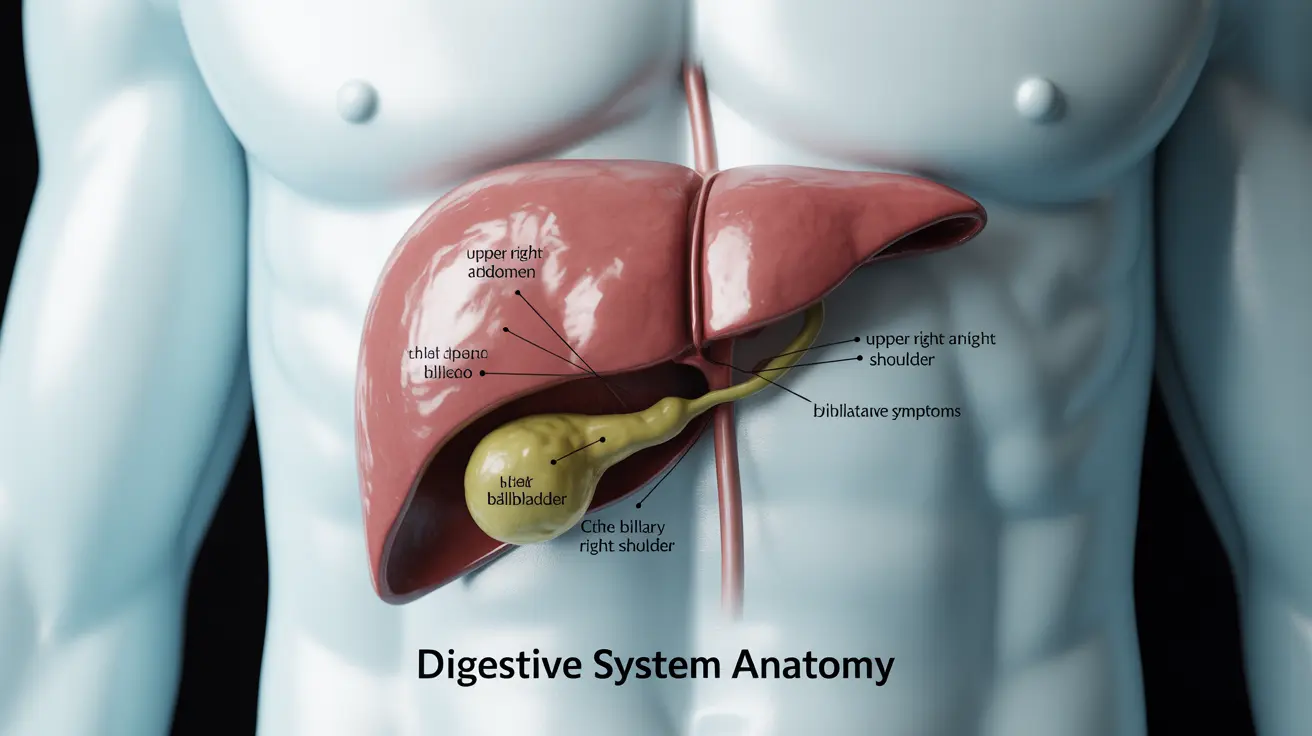Understanding the first signs of a bad gallbladder is crucial for early detection and treatment of gallbladder problems. This small but vital organ plays an essential role in digestion, and when it malfunctions, it can lead to significant discomfort and potential complications. Recognizing these early warning signs can help you seek timely medical attention and prevent more serious health issues.
Common Signs and Symptoms of Gallbladder Problems
The most frequent indicators of gallbladder dysfunction typically manifest in several distinct ways:
Pain and Discomfort
The hallmark symptom of gallbladder issues is pain, which often presents as:
- Sharp or cramping pain in the upper right abdomen
- Pain that radiates to the right shoulder or back
- Discomfort that worsens after eating fatty meals
- Pain episodes lasting anywhere from a few minutes to several hours
Digestive Symptoms
Gallbladder problems frequently affect the digestive system, causing:
- Nausea and vomiting
- Indigestion after meals
- Bloating and gas
- Changes in bowel movements
Other Notable Symptoms
Additional signs that may indicate gallbladder issues include:
- Fever and chills in cases of infection
- Yellowing of the skin or eyes (jaundice)
- Loss of appetite
- Unexplained weight loss
Risk Factors and Causes
Understanding what contributes to gallbladder problems can help identify your risk level:
- Being female, especially over 40
- Obesity or rapid weight loss
- Pregnancy
- Family history of gallbladder issues
- Certain medications, including hormone therapy
- Diet high in fat and cholesterol
Diagnostic Process
If you suspect gallbladder problems, your healthcare provider may recommend:
- Ultrasound imaging
- Blood tests
- HIDA scan
- CT scan or MRI in some cases
Treatment Options and Management
Conservative Treatments
Some gallbladder issues can be managed without surgery through:
- Dietary modifications
- Pain management
- Medication for gallstones
- Lifestyle changes
Surgical Intervention
In more severe cases, surgery might be necessary:
- Laparoscopic cholecystectomy
- Open cholecystectomy in complex cases
- Emergency surgery for acute complications
Preventive Measures and Lifestyle Changes
Maintaining gallbladder health involves several preventive strategies:
- Eating a balanced, low-fat diet
- Maintaining a healthy weight
- Regular exercise
- Staying hydrated
- Avoiding rapid weight loss
Frequently Asked Questions
What are the first signs of a bad gallbladder, and how do I know if I have one?
The first signs typically include pain in the upper right abdomen, especially after meals, nausea, bloating, and intolerance to fatty foods. If you experience these symptoms consistently, consult a healthcare provider for proper evaluation.
Can gallbladder problems be treated without surgery, and what are the options?
Yes, some gallbladder issues can be managed without surgery through dietary changes, medication, and lifestyle modifications. However, severe cases or complications usually require surgical intervention.
How do I differentiate between gallbladder pain and other types of abdominal pain?
Gallbladder pain typically occurs in the upper right abdomen, often after meals, and may radiate to the back or right shoulder. It tends to be more severe and persistent than general indigestion or gas pain.
What foods should I avoid if I have gallbladder issues, and are there any dietary solutions to help manage symptoms?
Avoid high-fat, fried, and processed foods. Focus on lean proteins, fruits, vegetables, and whole grains. Gradually increase fiber intake and maintain consistent meal times to help manage symptoms.
What are the risks of leaving gallbladder problems untreated, and when should I seek medical attention?
Untreated gallbladder problems can lead to serious complications including infection, inflammation, rupture, or blockage of bile ducts. Seek immediate medical attention if you experience severe abdominal pain, fever, yellowing of the skin, or persistent vomiting.




